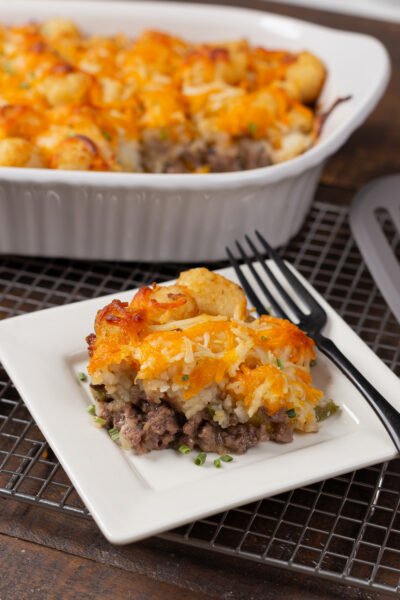I think it’s safe to say everyone at some point has complained about trying to lose weight, how they can’t lose weight, or that they just don’t know how to lose it. We’ve all heard about the latest and greatest diets popping up every other month that claim to do what most people have trouble doing…losing that unwanted weight. Well the thing with all these “latest and greatest” diets is that (I’m not saying they are all bad) 99% of the time it’s a waste of money and/or extremely unhealthy. Losing weight is only as hard as you make it. Really, if you want to lose weight, it’s not even as close to as hard as most people think it is. Use the K.I.S.S (Keep It Simple Stupid) way of thinking when it comes to weight loss. I will try and make you understand how simple it is to lose weight. If you don’t somewhat understand how to lose weight after reading this article, feel free to shoot me an e-mail with any of your questions!
There are two parts to losing weight (diet and exercise). The first and most important part of losing weight is diet. You can live in the gym, but if your diet isn’t in-check you aren’t going to make much progress. This is by far the hardest part of losing weight. The concept is simple:
eat under your “maintenance” and you will lose weight (calories out > calories in)
But you are now probably confused as to what I’m talking about so I’m going to do my best to make you understand what “maintenance” means and how you figure it out.
Your maintenance in terms of dieting, is the amount of calories you need to eat in order to maintain your current weight. By eating over maintenance you will gain weight and by eating under maintenance you will lose weight. Seems simple, right? That’s because it is!
To find your maintenance is the hardest step. The guideline I use for determining maintenance is 15 calories per 1lb of bodyweight. So if you are 200lbs, your maintenance calories would be around 3,000. Since we all have different metabolisms, bodyfat %, age, genes, etc, you may or may not need to eat 3,000 calories to maintain 200lbs. The baseline of using 13-15 calories X 1lb bodyweight is just what you should start with. To accurately find your maintenance you will need to weigh yourself in the morning and eat whatever you think your “maintenance” is for 1-2 full week(s). If your weight stays the same then you have found your maintenance.
Here is a simple equation that I like to call the LMG (Lose, gain, and maintain) Method (extremely simple and seems to work for most people)
- 10-12xBody Weight to LOSE
- 13-15xBody Weight to MAINTAIN
- 16-18xBody Weight to GAIN
Now that you’ve found your maintenance the hardest part is over. To lose weight, you will now have to eat under maintenance. The key is to not eat too much under maintenance or this will compromise your metabolism, which in-turn will cause you to not lose weight as fast and/or lose a lot of muscle. I recommend losing no more than 1-2lbs/week depending on how much you weigh as this will be optimal in saving as much muscle as possible. There are other factors that go into this equation (if you are extremely overweight or are holding a lot of water weight you will lose much more weight at first than the average person trying to shed a few pounds) but for most people, you will want to aim for 1-2lbs.
To eat under maintenance you simply want to lower your calories by 4-600. So if you are 200lbs and maintaining at 3,000 calories a day, you would want to lower your calories to 2,400-2,600 to effectively lose ~1-2lbs/week. You will want to check every 2nd week to see if you are still losing weight. If weight loss has stopped I recommend dropping your calories by 250-350 and continuing with the diet. If you are losing a extreme amount of weight, you will want to add more calories into your diet in order to not lose muscle mass. I suggest adding 150-200 calories.
Another way to find out your maintenance, dieting, or gaining calories is the Harris Benedict method (more accurate than above). You must first find out your Basal Metabolic Rate (BMR) which can be found: https://www.myfitnesspal.com/tools/bmr-calculator
In order to use this method you must take your BMR and multiply it according to your lifestyle. Here is a example list:
Activity Multiplier
- Sedentary = 1.2 (little exercise, desk job)
- Light Activity = 1.375 (light exercise/sports 1-3 days/wk)
- Moderate Activity = 1.55 (moderate exercise/sports 3-5 days/week)
- Very Active = 1.725 (heavy exercise/sports 6-7 days/week)
- Extreme Activity = 1.9 (heavy exercise/sports, physically demanding job)
Now if you think you are in-between any of these you would simply use that number. For example, if you are between Moderate and Very Active you may want to use 1.65 or something around there.
So if your BMR is 1800 and you are moderately active (1.55) you would multiple these 2 – 1800×1.55 = 2790 calories. This is your rough estimate/starting point to maintain your current weight. In order to lose weight you will want to subtract from this. If you want to lose 1 pound (3500 calories) you will have to cut out 500 calories a day making your intake for the day 2290 calories. This will allow you to lose 1 pound a week (500 calories x 7 days = 3500 calories = 1 pound).
Tips:
- If you want to lose more, lower them more
- If you want to gain more, add more
- If you are more active on one day, add more
- If you are less active on one day, subtract more
- If you see progress slow down you may want to lower them by 2-300 or try and be more active
- A scale is sometimes not the best indicator of fat loss. You may be losing fat while gaining muscle (thus lowering your bodyfat %) so use a mirror and/or pictures to also monitor your progression.
You may now be wondering what you should eat. The thing with this is, it’s all about you for the most part. If you can stay with-in your macros, you will pretty much be able to eat whatever you want. No, that doesn’t mean you can gorge on unhealthy desserts, fast food, etc. It just simply means that you won’t be limited to what “healthy” foods you can eat.
Your “macros” are your daily intake of fats, carbs, and protein.
The macros I have most people follow are 30% Fat, 35% Carbs, and 35% Protein. This means that if you are trying to eat 2,500 calories a day:
- 750 calories will come from fat (~83grams of fat)
- 750 calories will come from carbs (206grams of carbs)
- 1,000 calories will come from protein (206 grams of protein)
Good to know:
- 1 gram of protein has 4 calories
- 1 gram of carbohydrates has 4 calories
- 1 gram of fat has 9 calories
This macro guideline (30/35/35) is just something to follow. Some people are carb friendly and some people aren’t. Feel free to lower the carb intake and increase fat/protein intake.
You may find it hard to keep track of all the calories in your head or by constantly writing them down. There are many websites out there now that focus on tracking your calories. A couple examples would be:
You can use these sites as a starting point. Once you understand what you should be eating and how much of what, you won’t need to be as strict with your tracking.
For the most part, you can eat whatever you want as long as it fits into your macros (the 30% fat, 35% carbs, and 35% protein). Obviously you still want to stay away from foods high in sugar, a ton of saturated fats (not all fats), etc. Stick to foods you know are healthy. If some days you make room in your macros in order to eat some pizza, it’s not going to kill your diet. The key is moderation, common sense, and keeping track of your calories/macros.
Quick tip: You also want to make sure you are drinking enough water. Remember, your body will retain water if you are not drinking enough…which will cause you to gain water weight/bloat a long with a variety of other health benefits.
Now for the second part of the equation: exercising. This is the part that a lot of people over think. The key is to just being consistent. I personally recommend 3-4 days a week with combined cardio and weightlifting for losing weight. You don’t need to spend all day in the gym. The type of cardio you do is up to you. Whether it’s swimming, jogging, incline walking, trainers, jump rope, etc…it’s all going to do the same thing (burn calories). So why not do something you enjoy? The weightlifting portion of exercising will help you retain/build as much muscle as possible during the diet (as well as burn calories).
As for the type of routine you should do, that is all dependent on you and what you like. There is no perfect routine or exercise for anyone. The thing is to get to know your body and see which routine your body responds best to. As a Personal Trainer I have talked with people that saw their greatest results with something I saw bad results with. EVERYONE (for the most part) is different. You must always keep and open mind and ultimately find out what you like the best and what works best for you. If you hate what you’re doing (or eating), chances are you are just setting yourself up to fail.
Things to take into consideration:
- Don’t try and do everything at once. Over-doing it will make you stressed out and lead to failure. Start by slowly getting rid of junk food or soda and then work on cleaning your diet up. You will probably lose weight just by doing this.
- Don’t over-think anything. There is so much information and mis-information out there that you could spend years researching a single topic.
- Don’t stress out. Stressing out too much over anything will effect your progression.
- Don’t spend your life in the gym. Your body needs rest to repair itself and for your muscles to grow.
This is just a basic guideline on how to lose weight for the average person. Depending on what your goals are there may be more optimal diets/routines you can do to see better/faster results which can be discussed in my training programs. E-mail me for a free consultation!
EAT RIGHT, EXERCISE, SLEEP, and REPEAT to achieve your goals








good morning!!
you are my FIRST food blog every day…
lol, You and my Morning Coffee to start my day…
thank You
That’s amazing Rayma! I’m honored!!!
I’m 33 and I weigh 163. But I want to 145 build. How many calories I need to eat to reach my goal.
Do you have any idea what your “maintenance” calories are yet Justin?
Very good article. I was struggling to lose weight and discovered that I wasn’t eating enough through trial and error. I’m 252. Down from 293 with a goal of 200. In my experience your formulas are spot on for calculating maintenance and loss numbers. One error though. I think your math is off in your 2500 cal macro example. It should be 750 Cal’s from fat. 875 Cal’s from protein and 875 cals from carbs to get a 30/35/35 ratio.
I was curious about the whole carb thing. I’ve read, if you can keep carbs low enough, you don’t have to worry as much about the calories? Some bodybuilders have even told me to eat less carbs, to lean out and get faster results.
Keep the recipes coming. I like seeing the healthy recipes. Now if someone could make a healthy fast food restaurant.
Hey Derek, I have a question, my bmr is 2150, I do like light to moderate excersise, and I am eating 2000 cal diet and not losing weight, what am I doing wrong?
Sounds simple when you put it like that! And seriously with all your awesome recipes that are really simple and yummy, it is gonna be easy to lose weight! Thanks for all your info!
Great post…. tell in a simple and a good way everything that u shoul know about nutrition… well actually how to eat right…. very goog!!
Thank you Bruno! Much love
When you do the calculations.. for example, 125lb female for weightloss x 12 = 1500 intake. Is this for a rest day then since you are already subtracting from maintenance? Or is it 1500 everyday even if cals burned through workouts were 400-500? Thanks.
You would factor in the calories being burned during your workout as well! I’m actually working on a move informative, updated version of this that should be up this weekend which might help you a bit more.